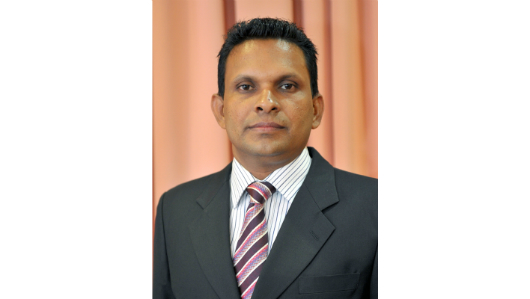Former President Mohamed Nasheed has denied ordering Criminal Court Chief Judge Abdulla Mohamed’s arrest at the second hearing of a surprise terrorism trial.
“As President of the Maldives, I did not order any harm unto or the arrest of any citizen,” the opposition leader told the Criminal Court tonight.
“These are politically motivated charges, an atrocity planned and carried out by the government,” he said.
Nasheed said he had no hope of a free and fair trial, noting that the Prosecutor General (PG) Muhthaz Muhsin and two of the three judges presiding over his trial were among the state’s witnesses.
Addressing Judges Abdulla Didi and Abdul Bari Yoosuf, Nasheed said: “You saw this very closely. You are his [Judge Abdulla’s] colleagues. I do not see how you, by the Islamic Shari’ah, Maldivian laws and international laws, could deliver an impartial verdict.”
Tonight’s hearing ended with the Criminal Court granting Nasheed three extra days to prepare his defence, after his lawyers claimed they had not had adequate time to research and review the state’s charges and evidence.
The opposition leader was arrested on Sunday ahead of a surprise hearing on terrorism the next day. The Criminal Court had denied him legal representation at the time and ruled he be kept in police custody until the end of the trial.
“Politically motivated atrocity”
Before the hearing began, Nasheed and his four-member legal team complained over seating arrangements which separated the former president from his lawyers. The former president requested to be seated among his lawyers to be allowed to confer with them easily.
The three-judge panel refused to change the setup, but did allow lawyers to approach the defence stand and consult with Nasheed throughout the trial.
In his opening remarks, Nasheed pointed out PG Muhthaz Muhsin, a former Criminal Court judge, was Judge Abdulla Mohamed’s colleague. Muhsin had withdrawn lesser charges submitted by former PG Ahmed Muizz and asked Nasheed be prosecuted under a harsher terror law.
Nasheed is now being tried under the 1990 Anti Terrorism Act, which considers abductions, kidnapping and attempts to do so as acts of terror.
Muhsin’s decision to re-prosecute demonstrated the political nature of the charges, Nasheed contended.
The PG raises criminal charges on behalf of the public to ensure public safety, Nasheed continued, stating: “Public support for me during the presidential elections, 49 percent, demonstrate they do not view me as a terrorist.”
“My concern is not on damages I would be caused, but on the dark shadow [this trial] would cast on Maldives’ future,” he added.
Noting the Criminal Court had denied him legal representation at a first hearing, and ruled he be held in pre-trial detention, Nasheed said: “What I’m seeing is that you are unable to or face great difficulty in ensuring a fair trial.”
The three judges did not respond to Nasheed’s statements, and upon his request asked lawyers to proceed with his defence.
Lawyer Abdulla Shaairu then held up a thick sheaf of papers and said the legal team had not had adequate time to prepare a defence. In the three days granted previously, lawyers were only able to skim through documents and needed more time to clarify the exact nature of charges, he added.
Judge Didi agreed, and adjourned the hearing. Judge Sujau Usman is the third member of the Criminal Court panel.
In a statement earlier this week, PG Muhsin said there were no legal obstacles to pressing terrorism charges. Meanwhile, the ruling Progressive Party of the Maldives (PPM) insists it has no influence over the independent PG and independent courts.
Nasheed’s trial demonstrates “no one is above the law,” PPM MPs have claimed.
Judge Mohamed’s detention in January 2012 triggered three weeks of nightly protests, culminating in a police and army mutiny forcing Nasheed’s resignation.
Manhandled
Nasheed appeared in court on Monday with his arm in a makeshift sling after a scuffle in which police manhandled the former president as he attempted to speak with journalists outside the Justice Building.
The EU, UN, Commonwealth, US, India, Canada and UK have expressed concern over Nasheed’s arrest, subsequent terrorism charges and denial of legal representation.
Current Defence Minister Moosa Ali Jaleel, then-Defence Minister Tholhath Ibrahim, MDP MP and retired Brigadier General Ibrahim Mohamed Didi and retired Colonel Mohamed Ziyad are also facing terrorism charges over the judge’s detention.
All have pleaded not guilty to charges.
On Tuesday, Nasheed’s lawyers named presiding Judges Abdulla Didi and Abdul Bari Yoosuf as witnesses, noting the pair had been present with Judge Mohamed at the time of his arrest, and requested they withdraw from the bench.
Nasheed’s trial comes shortly after the MDP and former ruling coalition partner Jumhooree Party allied against what they call President Abdulla Yameen’s repeated violations of the constitution.
The allied opposition parties have planned mass demonstrations for tomorrow (February 27) and have pledged to topple Yameen’s administration.
Related to this story
Former President Nasheed arrives in court with arm in makeshift sling
Nasheed denied right to appoint lawyer and appeal “arbitrary” arrest warrant, contend lawyers
Police arrest former President Mohamed Nasheed ahead of terrorism trial
Likes (4)Dislikes
(4)Dislikes (0)
(0) 